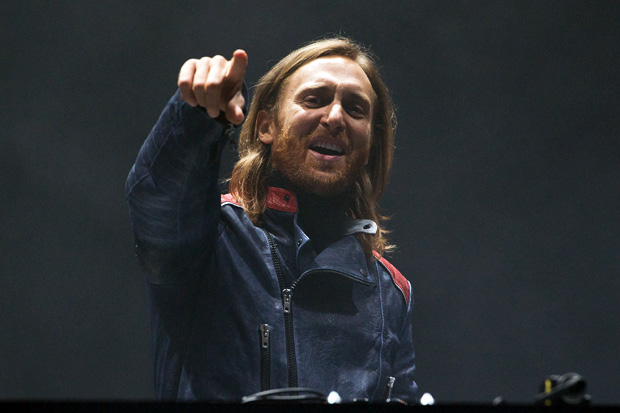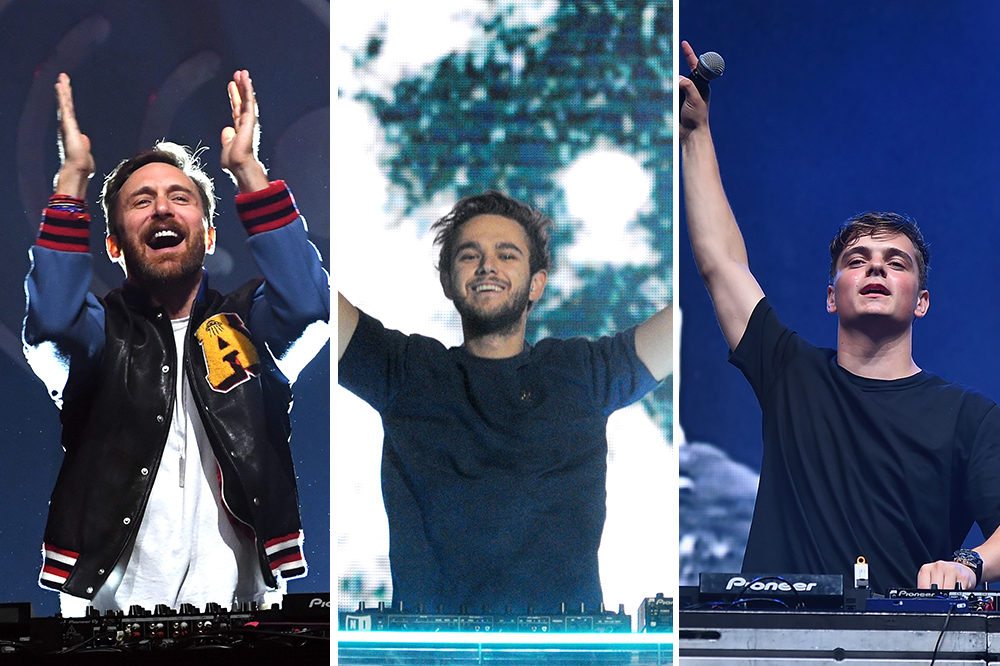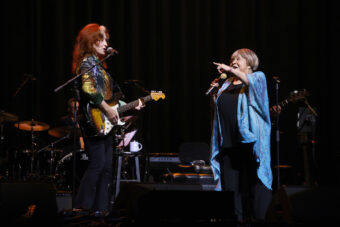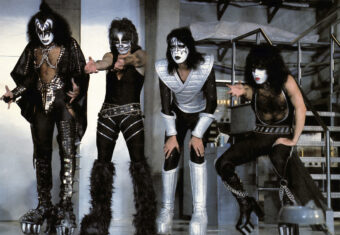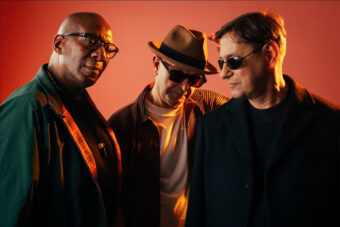If you thought that what the world of electronic dance music really needed was more pomp, circumstance, and self-congratulation, well, you’re in luck. At Las Vegas’ EDMbiz conference this week, Insomniac, the promoter behind the Electric Daisy Carnival, announced a partnership with Dick Clark Productions to produce a dance-music awards show to coincide with the 2014 edition of the festival.
This isn’t entirely surprising news; Billboard reports that DCP had previously expressed interest in launching a dance-music awards show. Given the amount of cash being pumped into the EDM marketplace — and the absence of any major, mainstream awards ceremonies in the sector — it was a vacuum just waiting to be filled. Nevertheless, the move is a head-scratcher on numerous levels, beginning with Insomniac’s partner in the venture.
Not to speak ill of the dead, but Dick Clark, who passed away last year, is hardly a figure one associates with the future of youth culture, despite his nickname as “America’s Oldest Teenager.” On the contrary, his 40-year reign as the unofficial host of New Year’s Eve was pretty much synonymous with old-media monoculture.
Dick Clark Productions isn’t limited to its late figurehead, of course, but you still wonder how well a company headed by the chairman of the TV Guide Network is going to understand dance-music culture. Founded in 1957 and now co-owned by the financial-services firm Guggenheim Partners, the sports and entertainment company Mandalay Entertainment, and Mosaic Media Investment Partners, DCP continues to produce awards shows like the American Music Awards, the Academy of Country Music Awards, and the Golden Globe Awards, none of which have a reputation for being particularly edgy, despite Ricky Gervais’ best efforts. Of last year’s AMAs, SPIN wrote, “The 2012 American Music Awards raved lamely through its EDM-iest ceremony ever Sunday night [November 18], surprising none with its predictable performances and new crop of old winners.”
Insomniac also doesn’t seem like the outfit best suited for recognizing exceptional talent in electronic music. Insomniac founder Pasquale Rotella has long made it clear that the artists he books are, in some sense, incidental. The term “headliner,” in EDC-speak, is reserved for the fans themselves, and he has praised Burning Man as a festival with “no talent” — that is, an event where there are no stars besides the attendees themselves. At last summer’s EDMbiz conference, he boasted, “Our strategy moving forward is we don’t want to book the [big] guys… I don’t want to be a promoter. My passion is not selling tickets and making money. I want to create an experience. You don’t need to book the big acts who sell out arenas.”
Of course, Insomniac does book the big guys: This year’s lineup is top-heavy with acts like Tiësto, Avicii, Afrojack, Steve Angello, Calvin Harris, Armin van Buuren, Above & Beyond, and many of their Top 100 DJs Poll cohorts. And, as the Los Angeles Times‘ August Brown wrote of this year’s edition of EDC, “With a lot of venues and fests making EDM available to Southern Californians all year round, the acts at Las Vegas’ fest aren’t new and exciting.” True, Insomniac does recognize emerging artists in the form of its Discovery Project talent search (although it relegates them to a separate stage, and winners of its EDC London edition are even responsible for their own travel arrangements). And, true, the festival’s lineup this year is more diverse than in years past, thanks in part to co-branded bookings at its Neongarden stage with Richie Hawtin, Carl Cox, and Damian Lazarus, all presenting talent that could be considered left-field in the context of EDC’s main-stage offerings.
But there’s a huge swath of electronic dance music that isn’t represented at Insomniac events, and not just because it’s too “underground” (a code word, in mainstream EDM, for club music that doesn’t pander). Insomniac and EDC acknowledge the diversity of electronic styles to a certain extent — this weekend’s bill includes hip-hop legend Just Blaze, trap enigma UZ, and Chicago house pioneer Green Velvet — but those tend to be exceptions to the rule. As middle-of-the-road as Ibiza may be (and as much as Vegas clamors to be the new Ibiza), the White Isle is much more representative of dance music’s complicated array of scenes and sounds and niches-within-niches. (Stateside, HARD fest and even Ultra Music Fest have done a better job than EDC of acknowledging styles and subcultures that lie beyond the borders of Kandi-land.)
Insomniac is clearly bent upon cornering as much of the EDM market as it can. And, given the Live Nation partnership that Rotella confirmed this week — rumored to be a $50 million deal giving Live Nation a 50 percent stake in Rotella’s company — that could become a very big corner indeed. Last year, the company created the EDMbiz conference, modeled after the Winter Music Conference of yore, Amsterdam Dance Event, and Pete Tong’s International Music Summit in Ibiza, as a way of lending professional gravitas (and luring suits) to a Vegas affair otherwise swimming in glitter and tutus; it has also built up “EDC Week” as a week-long stretch of pool parties and club nights surrounding its flagship event, in an attempt to reinforce Vegas as the epicenter of American club culture. And Insomniac’s efforts reach far beyond the Southwest; its holdings include numerous festivals across the country (Nocturnal Wonderland, Beyond Wonderland, Escape from Wonderland, White Wonderland, Autiotistic, Bassrush, and Electric Forest). It also has a hand in the Los Angeles nightclubs Create and Exchange L.A.. This year, EDC is even heading overseas, putting on its first-ever London edition in partnership with Cream — a company recently acquired, as you may recall, by Live Nation.
Never mind the scent of EDC’s fireworks show wafting across the field; this smells more like monopoly. Do we really want a company so deeply entrenched in the traditional entertainment business handing out dance-music awards? Is there a chance in hell that artists not booked for EDC will even be considered for trophies? It might be a footnote, but consider this: When I visited EDC in 2011 for SPIN’s Skrillex cover story, I looked up the booking agents for 125 of the festival’s acts, the vast majority of the lineup. Of those, just one agency, AM Only, represented 46 acts on the bill, or approximately one-third of the artists performing. Just four agencies (AM Only, Circle, WME, and Windish) accounted for 93 acts, or roughly 75 percent of the marquee. I haven’t run the numbers for this year’s lineup, or for the lineups of festivals like Ultra and HARD, for that matter; perhaps that’s normal. But the talent buying at Insomniac, at least, appears to be centered on a small handful of companies, which doesn’t bode well for the inclusiveness of any awards ceremony that Insomniac presents.
The bigger question remains: Do we even need an awards ceremony for dance music? The Grammys already showed how out of touch the mainstream music industry is when it comes to club culture — ladies and gentlemen of the jury, I would like to call Al Walser to the stand — and the Billboard Music Awards didn’t do any better. For 30 slots attached to six dance-music categories, there were only 11 artists nominated — among them, Madonna, Psy, Nicki Minaj, and Rihanna. (Confusing matters even more, there were separate categories for “Dance” and “EDM”; Baauer won in both.)
The Winter Music Conference has long hosted its own International Dance Music Awards (IDMAs), but those have traditionally been more industry-facing, and in any case, their categories and nominations alike are something of a joke. Case in point: Duck Sauce’s “Big Bad Wolf,” released on the Atlantic subsidiary Big Beat, won “Best Underground Dance Track” in 2012. In 2010, Deadmau5 won “Best American DJ,” despite the fact that he is neither American nor, for that matter, a DJ. He won again in 2011 in the revamped category “Best American DJ (North America)”; this year, with a little corporate help, they finally ironed out the kinks and termed the category “Smirnoff’s Best North American DJ.” The teetotaling Kaskade won.
Ultimately, electronic dance music is too fragmented to be represented by any one awards show, especially when the trophy is being presented by an organization with a financial stake in the results. What might be useful would be an annual accounting based on sales data and DJ charts across the board, but no organization exists at the moment to collect all that data. Between, say, Billboard‘s club-play charts and the Resident Advisor DJ charts, a huge gulf exists. Nielsen SoundScan can’t account for vinyl-only sales at mom-and-pop shops, and you won’t learn about what’s happening overseas via the RIAA. From a geek’s point of view, it would be nice to have a single repository of club-music data from around the world. Imagine if there were a system in place that logged the setlists of all DJs playing digitally (which is, now, the vast majority of them): Some of those paid-for Facebook “likes” might start to look at lot more phony.
But maybe the absence of an industry-wide awards ceremony is precisely as it should be. Institutions like the Breakspoll Awards maintain their credibility because they’re tied to scenes with relatively distinct boundaries. It’s one thing to measure breakbeats against breakbeats; it’s another to stack SoCal’s snapbacked bro-steppers against scarf-wearing Ibiza residents. Or, indeed, given Rotella’s fondness for his “headliners,” to elevate “production and lighting” — two elements he emphasized in the awards-show announcement — over the glowstick-waving fans who allegedly constitute EDC’s beating heart. Will there be awards for the most elaborate Kandi constructions? Insomniac has already banned “gloving” — LED displays that the promoter deemed “reflects poorly and sends a false message of what the electronic dance music scene is about,” presumably because gloving draws zonked-out ravers like moths to a flame. (“Our intentions are to keep the dance music scene healthy and respectable,” concluded the organization’s 2011 statement. “For the time being, we ask that you please leave the light shows to us and contribute to the longevity of our beautiful scene.”) Fortunately, light-show aficionados have their own competition — Gloving Championship. Insomniac, meanwhile, continues to spin its glittering web deep in the heart of Vegas. We’ll see what it ensnares.

